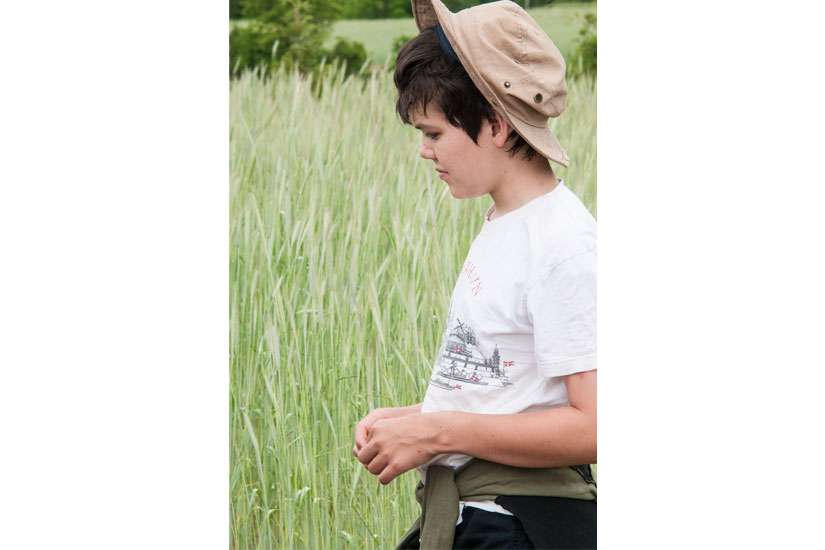1. Be more attentive to nature
Pope Francis quotes St. John Paul II who once said that to contemplate creation is to hear the message of God. He says that by becoming more aware of God’s presence in nature, reverence and care for the environment will naturally follow, so take advantage of the summer weather and go outside. Say a prayer before your morning jog.
2. Find happiness in the simple things
Discussion about care for the environment doesn’t have to be grim. Embrace a hopeful attitude and be a more contagious voice in the conversation. Pope Francis encourages people to have a “happy sobriety” about our environmental consciousness.
3. Look to the saints
Pope Francis references many great saints in Laudato Si’, such as St. Thomas Aquinas, St. Therese of Lisieux and of course, St. Francis of Assisi. Take a cue from the Pope and look to the lives of saints as inspiration. They are great resources to learn more about how God works through creation.
4. Change the home, change the world
When faced with a culture of death, Pope Francis emphasizes that the heart for a culture of life should first be taught at home. He encourages teaching children why and how protecting the environment can ensure their future. Spark up a conversation at home about how the family can be more environmentally friendly.
5. Pray
Pope Francis presents a practical tip by encouraging people to return to the practice of praying before and after every meal. It’s a small way of instilling the habit of demonstrating gratitude for God’s daily blessings.
6. Adopt a greener diet
It’s not just about eating more vegetables. Pope Francis encourages people to be more mindful of the food they buy. He says that today’s ecological crisis must be translated into new habits. Consider taking meatless Fridays beyond the Lenten season. Buy local foods that are organic and in season. Why can’t your diet be good for you and for the environment?
7. Examine what you buy
Pope Francis reminds us of what Benedict XVI once said, “Purchasing is always a moral — not simply an economic – act.” Use your purchasing power for good. Be mindful of the products that you use in your daily life. Make sure that the products you buy deserve your money. Drink fair trade coffee. Buy cosmetics not tested on animals. Use biodegradable cleaning products. Look for recyclable packaging.
8. Practice the three Rs: reduce, reduce, reduce
Laudato Si’ encourages people to aim for a new lifestyle. Pope Francis is a huge supporter of public transit. He says you can also carpool or take your bike. Take time to sort your compostables and your recyclables. Turn off your air conditioning when you’re not home. Use energy efficient appliances or better yet, unplug some of them.
9. Use technology for good
Pope Francis says we have the freedom to limit and direct technology to nurture a healthier, more human, more social, more integral progress. A technology that most people use every day is the Internet and, more specifically, social media. Spread the message. Create an online community that will mobilize people to make good change.
10. Start a green team at your parish
Pope Francis says “the ecological conversion needed to bring about lasting change is also a community conversion.” Forming a green team at your parish is a good start. Assemble a cross-section of people to think about a sustainable change that makes sense for your parish. Start with something small, like changing to more environmentally-friendly lightbulbs or forming a study group on the encyclical.
11. Get to know the poor
Pope Francis said “we cannot adequately combat environmental degradation unless we attend to causes related to human and social degradation.” A true ecological approach isn’t just about an attitude with a “green rhetoric.” It’s also a social approach. Take your parish group to a street patrol mission. Volunteer at a homeless shelter or your local Salvation Army store.
12. Eco-justice is also social justice
Concern for the environment must be joined with a sincere love for our fellow human beings. Pope Francis calls this a “universal communion.” He says that our concern for the vulnerable through social justice movements are all connected with our ecological conversion. He calls for citizens to demand change and put pressure on people in power to lead the change in society.


